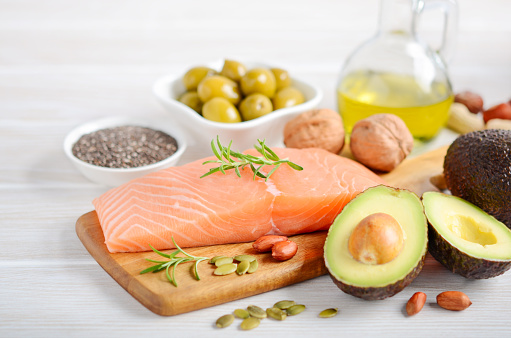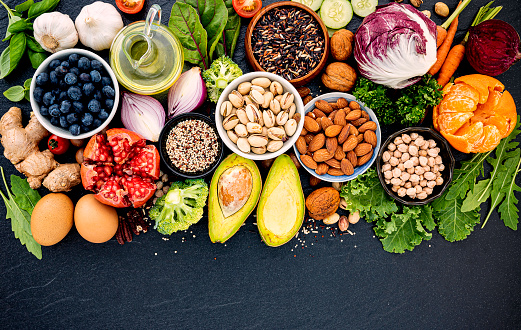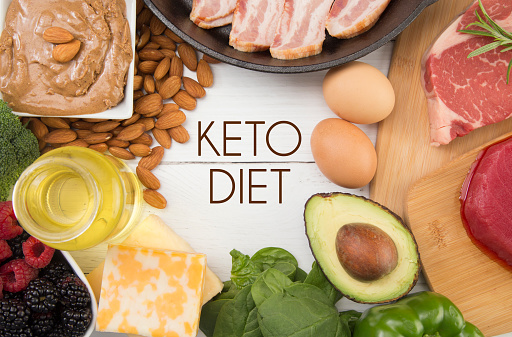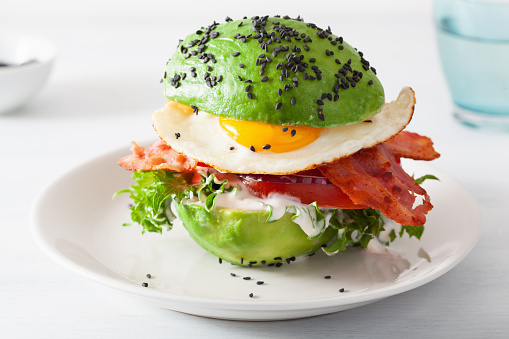There is a lot to be said about this subject. There are numerous medical research papers published about it, despite some of the common answers we can find about diet not affecting the oncology patients, we know this is not true! Diet is of utmost importance in such pathology. Once we understand and accept that cancer is a metabolic disease, affecting the cellular metabolic production of energy (ATP), at the mitochondrial level, and understanding how these cells use anaerobic respiration to produce energy, through a fermentation process, utilizing glucose to survive, then we will also find that these cells depend on sugar to survive! Although this is the simplest form to explain a much more complex process, in a nutshell, we can safely say that cancer cells live on sugar.

Unfortunately, it is not a clean cut or easy task to eliminate sugar from our diets, and, if you look a little further into it, you will discover that almost everything we eat has sugar or transforms itself into sugar, though our metabolic and disgestive process, like all the carbohydrates we consume, as part of a, supposedly healthy and balanced diet!
Well, I have bad news and good news!… Bad news is that, if you want to follow a ketogenic diet, you need to cut all the carbs and eliminate sugars. Good news is that this is possible, it has been, and continues to be well researched, and there are great options for a good, solid Ketogenic Diet!

Lots of research is available about this subject, so I will save you from extensive references and encourage you to look into it, yourself, if this is a subject of interest to you. Don’t look for personal opinions, search for clinical references, trials and research. A Ketogenic diet appears to be more effective than low-fat diets for treatment of obesity and diabetes, according to some clinical studies.
The Ketogenic Diet (KD) is a high-fat, adequate-protein, and very-low-carbohydrate diet regimen that mimics the metabolism of the fasting state to induce the production of ketone bodies. The KD has long been established as a remarkably successful dietary approach for the treatment of intractable epilepsy and has increasingly garnered research attention rapidly in the past decade, subject to emerging evidence of the promising therapeutic potential of the KD for various diseases, besides epilepsy, from obesity to malignancies. (in. Ketogenic diet for human diseases: the underlying mechanisms and potential for clinical implementations)

It is a diet that needs to be properly done and accompanied by a qualified professional, to monitor ketones. As your body breaks down fat, it produces a compound called ketones. The ketones, or ketone bodies, become your body and brain’s main source of energy. The fat your body uses to create ketones may come from your diet (nutritional ketosis), or it may come from your body’s fat stores (in. clevelandclinic.org)
We have worked with Ketogenic Diets with oncology patients, for several years now, and, in association with other colleagues we have found very encouraging and positive results with it. It is a challenging path that requires assistance, support and continuous monitoring. Nevertheless, it is worth our attention.

Whatever draws your attention to a proper ketogenic diet, being a particular pathology, degenerative disease, or simple weight loss plan, we are going, soon, to be offering a few Lectures on Ketogenic Diets, including some simple and delicious recipes for you to follow!
With over 30 years of experience and research in oncology, I have come across the good, the bad, and the ugly. Research is a very intense environment, with pressure coming from all sides of it. There is pressure from pharmaceutical-funded research projects, scholar results and independent-funded research, peer-to-peer research results (sometimes published in public forums for access to students), and so on. There is a lot of research done on the subject of cancer, not all with clear conclusions. Here is an example of good clinical research:
“Advance Cancer Treatment by Targeting Glutamine Metabolism” https://www.ncbi.nlm.nih.gov/pmc/articles/PMC8833671/
THIS IS REAL RESEARCH!!!…With proper references, accessible to the public, despite the fact that it is a peer-to-peer report, so it can help other researchers to continue the hard work of finding new answers.
Our challenge, as oncology specialists, it to bring this type of information to the public, in simpler terms and in moderated content, due to its technical description, unless you want to go and learn about every biological and metabolic concept explained.
The ketogenic diet, used in oncology, is not a new thing, and it is also not only used in oncology patients, as its uses are broad, from weight loss to controlling other pathologies. Under the oncology umbrella, several clinical trials and applications have been done, with very promising and encouraging results. Tumour cells use multiple pathways for survival and multiplication, and we are still looking for answers!…studying patterns of behaviour has been done for more than 100 years, now. What we have, so far, is a short list of common behavioural patterns for tumour cells, with a few variations, dependent on location and type of cells. The only common aspects in all tumours is the metabolic imbalance and their quest for survival, using specific metabolic pathways.
Of those, we know they do not need oxygen and they are dependent on sugar (glycolysis, glucose induced sources of energy, in all its many forms).
The Ketogenic diet is designed to reduce or simply cut the glucose supply to the body. That does not consider the simple ability the body has to produce glucose, or supply the cells with sugar!
Therefore, this is not all black and white,”magic formula” or a simple “fix bullet”.
It helped the research done, at the start of these discoveries, to understand tumour cell behaviour, and also the human body ability to accept and survive such atypical types of diets or metabolic environment. And this is of great importance!…
You already have multiple cancer protocols, using the conventional formats of chemotherapy and radiation, but you also know the end result and the consequences!…
Not all doctors and researchers accept to break the first and only professional oath they swore to – “Cause No Harm”. And we know that, from the moment you take a conventional pill, given by any doctor, that pill is going to cause harm and damage to the body, in exchange of masking another problem of symptom. That is what modern, corporative, capitalist-driven pharmaceutical companies produce!…There is no secret or conspiracy-theory here! It’s a real fact.
However, some of us have chosen to take another path, and still look for answers that respect the original oath, and we are still looking for answers that cause no harm to our health. And it is a challenge, because we still have to respect and follow international guidelines and regulations for good practice, and we are still using some conventional formats to conduct research and obtain results.
For example, from the above mentioned and posted clinical research, conventional treatments were still applied to different groups of patients, in order to be able to obtain the necessary funding to continue the trials! In order to do clinical research without pharmaceutical approval, it means finding other sources of funding! It costs millions to do this type, or any type, of clinical research, before we can get results. Then these results have to be published, approved, and reviewed. And it does not mean they are clear cut, written in stone, valid, or even true!!!
Not everything is ethical in clinical research, although it should be. But politics are dirty, as well, right? No difference, here.
Back to Ketogenic Diet and the promising results in oncology cases. Another pathway the tumour cells find to get a supply of energy, essential for their survival and growth, once the carbs are cut from the diet, is to utilize a NEAA (Non Essential Amino Acid) as a lipid source, critical for proliferation under hypoxia.
This is an interesting statement, and it serves, sometimes, to disorient research methods. Hypoxia means lack of oxygen, or under conditions of poor or very limited supply of oxygen. Well, cancer/tumour cells do not need oxygen to breathe or survive!
They have already overcome that difficulty, without dying! Because cancer is a metabolic disease, they utilize sugar to produce energy (ATP), at a mitochondrial level!
So, back to ketogenic diet, you cut the steady supply of carb/sugars, and those cells, now, have another problem. They lack food supply!…
Tumour cells use Glutamine, a NEAA to continue producing other forms of glucose, essential for their proliferation and survival! The question we have asked was, can we cut the supply of glutamine to the body?
Glutamine is the most abundant naturally occurring, nonessential amino acid in the human body, and one of the few amino acids that can directly cross the blood barrier. Difficult to eliminate glutamine supply to the body, and maybe, even counter-productive in the long-term, due to its function under normal conditions, of course.
However, there is always an “Achilles Tendon” or a “Trojan Horse” in everything, a weak link, or an inter-dependent factor that can affect the ways metabolism works!
As in everything, like the ongoing, perpetual weight gain or weight loss issues! Not everyone metabolizes food the same way, because of metabolic changes in the body, for example. Not everyone gains weight easily, under a normal, balanced diet, and not everyone has cancer, right?… Metabolic issues that need to be addressed, using multiple pathways!
And, now we are talking about another oncology challenge…We know all about the sugar and oxygen supply pathways, and we also know how to have better control, and some positive and promising success, in many cases, using that knowledge and the tools to control that.
But the glutamine issue is a lot more challenging, because we cannot control the glutamine production…or can we?…. More research, more funding, more questions and few answers…What if?…If we do this, what then?… Does it work?…Does it always work?…Are there consequences?…Are the consequences life-threatening?…Is cancer life-threatening?…Questions, questions, questions…Can we get honest answers and true answers? Can we have get answers?…In science, what is true, today, may be challenged tomorrow, and even be proven false, because we learn new things, everyday.
There is not a lot that can be done, at this stage, about controlling glutamine access from tumour cells, based only on diet.
What makes sense, so far, it to reduce glutamine-rich foods from the diet, and also use glutamine inhibitors to reduce the supply of glutamine to the cells, as much as possible, and within acceptable and safe range, of course.
If you search for glutamine-rich foods, and glutamine inhibitors, you will, soon, get a comprehensive list of things to do, or to avoid, to help your body to cope with the glutamine supply. So, you can, now, with this knowledge, help your body further to have a fighting chance against tumour growth or proliferation.
Further research has found that SLC1A5 (A neutral amino acid transporter B(0) is a protein that in humans is encoded by the SLC1A5 gene.) mediates glutamine uptake by the cells, and tumour cells use that pathway, under hypoxia. Understanding that the glutamine is critical for the proliferation of cancer cells, then we know it is important to eliminate, or make this pathway as difficult as possible for cancer cells!
Ketogenic diet with reduced carbs (use of 20grs/day has been accepted, in general), and blocking glutamine supply, through diet and using glutamine inhibitors seems to be a possible treatment target!
Have you noticed how I did not say “This is the answer to eliminate cancer cells!”…
But I can say, based on completed and ongoing oncology treatment trials and research that autophagy and apoptosis of cancer cells have been observed in glutamine starvation of cancer cells. Therefore, can this be a co-treatment strategy, in addition to other treatment strategies, like the keto diet, or the mistletoe therapy?
Furthermore, we do know of natural ingredients that supress glutamine uptake by inhibition of the SLC1A5 gene!
In my opinion, it beats the current conventional chemotherapy and radiation therapies. But this is my opinion, and I will not open a can of worms, discussing the success and results of current conventional treatments, promoted by the regular system.
This is a personal and professional opinion, based on my work, experience, information and belief, not to be discussed in public forums (modern gladiator arenas).
We are all entitled to have an opinion about something, but it is only valid if it is based on the truth and on real experience at a physical, spiritual, emotional and energetic level, with results that positively benefit our overall growth, development, and help us achieve balance as a constructive and evolving civilization, living in harmony with all other elements of nature and with each other.

